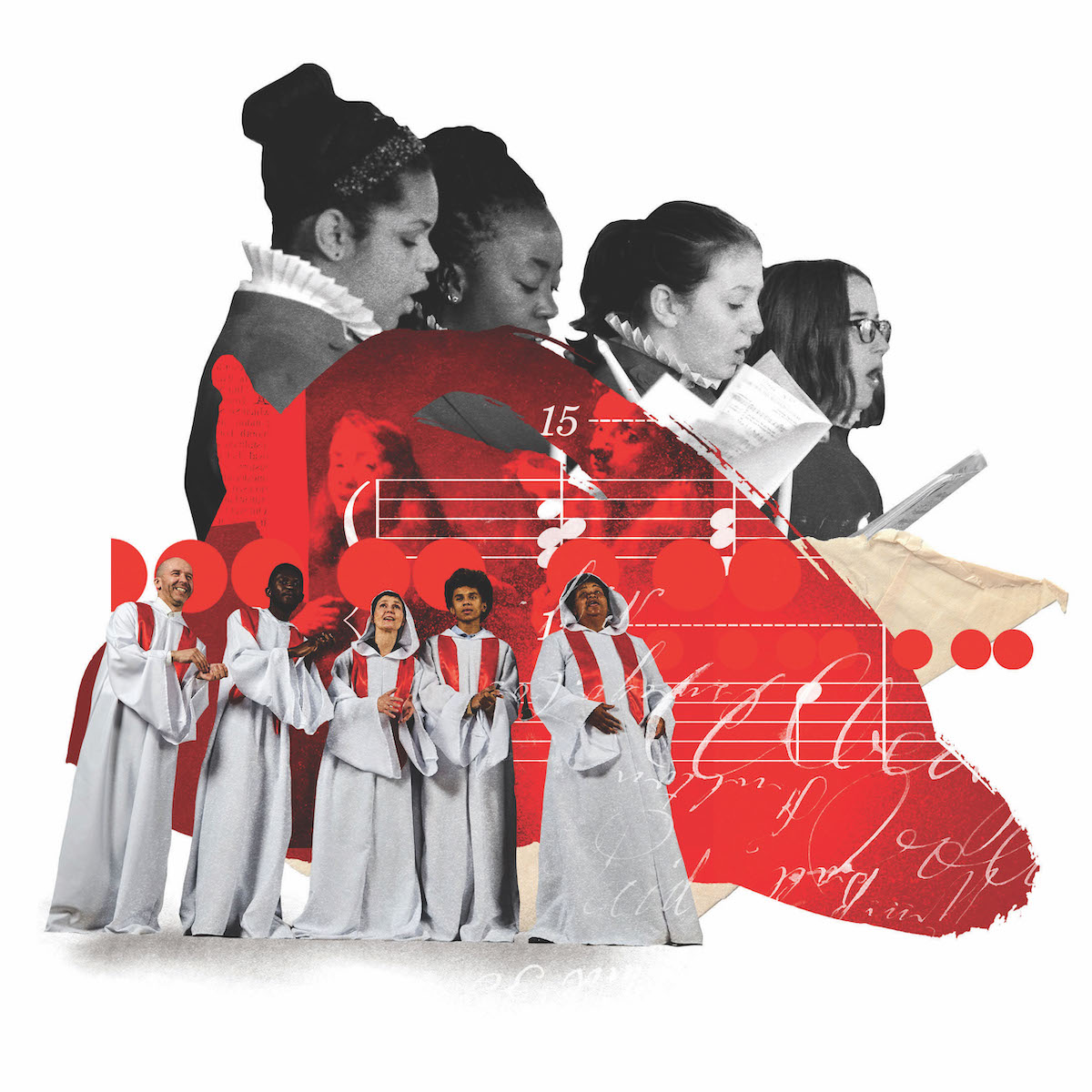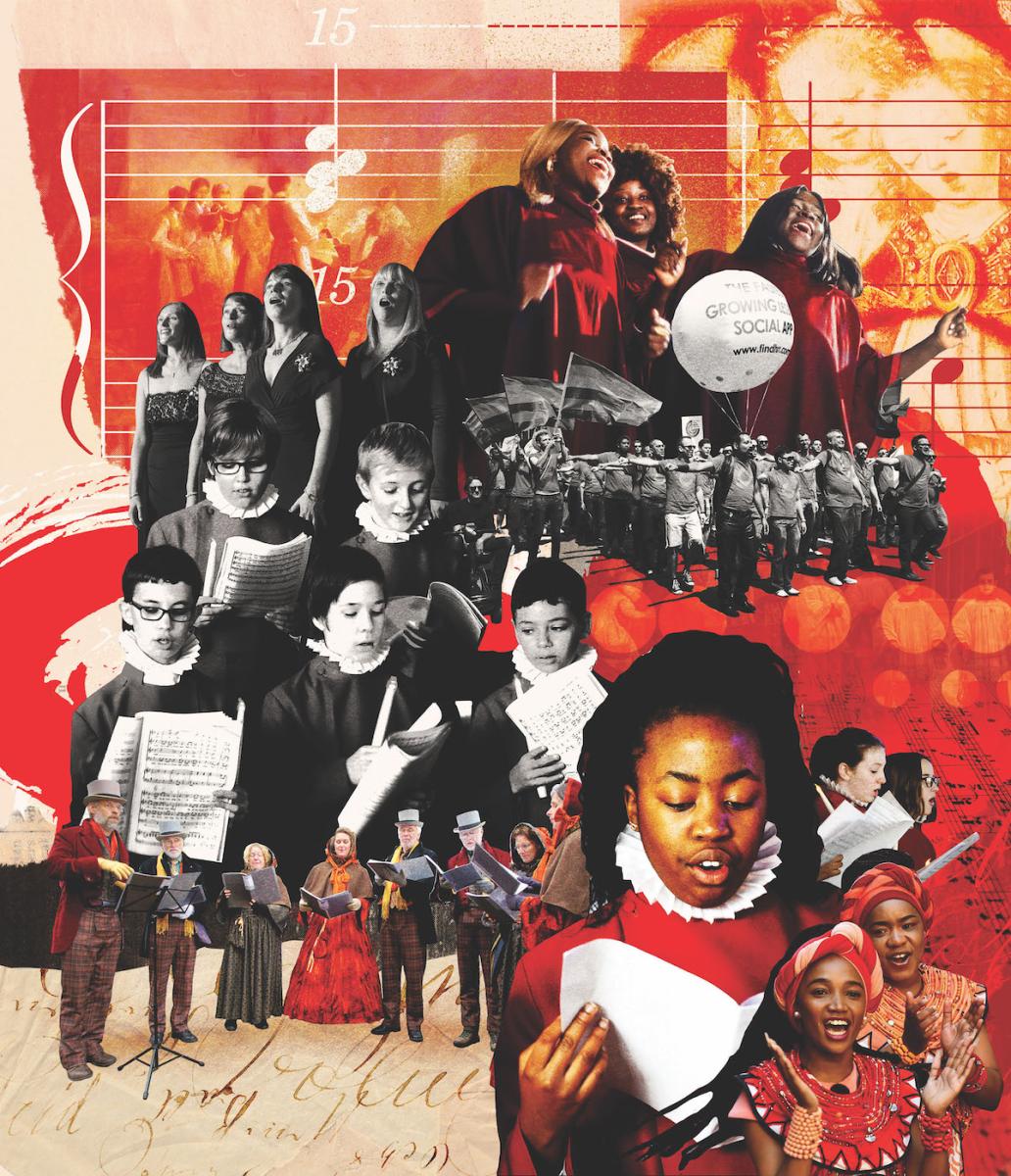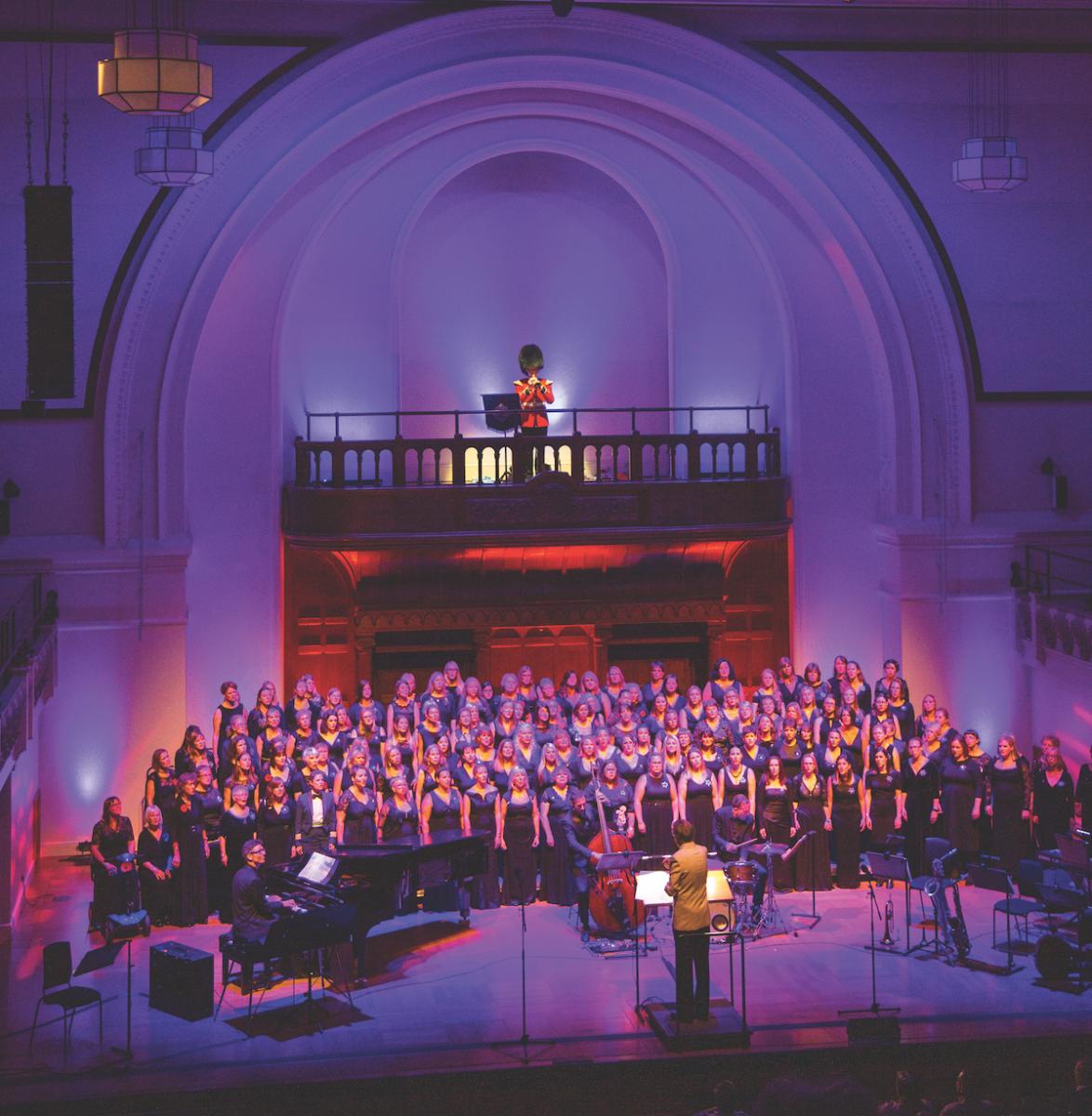This wonderful Cornish workshop and museum is dedicated to the legacy of studio pottery trailblazer Bernard Leach
The fantastic benefits of singing in a choir
The fantastic benefits of singing in a choir
22 Dec 2023
If you’ve booked a seasonal choral concert, or have singers coming to your door, spare a thought for the incredible benefits that being part of a choir can bring. Ciaran Sneddon brings you a short history of choirs, and explores how being part of one will boost your wellbeing
 Illustration: Eleanor Shakespeare
Illustration: Eleanor Shakespeare
Over the winter, many of us will be belting out carols and winter songs in communities. Singing as part of a group is a hobby that has almost as many traditions – some spiritual, others just quintessentially human – as it does participants.
Estimates in the late 2010s suggested there were two to three million choristers in the UK.
Now those numbers are growing.
From the Greeks to moaners: a pocket history
The term ‘choir’ can conjure images of school assemblies, religious hymns or university students putting a classical twist on pop anthems. In reality, a choir is just an organised group of people who sing together. No knowledge of music is required; an ability to hold a tune is desirable but not essential.
With such egalitarian mores, it’s hard to imagine any historic culture not landing upon the joys of group singing, though records are hard to find.
As ever, the ancient Greeks serve up evidence: the Delphic Hymns of the 2nd century BC are the oldest surviving examples of notated music discovered, and they would have been sung by a choir. These hymns, sung in unison, reference Apollo and the Muses. The people clearly liked the idea of a group singing as one: Greek choruses remain synonymous with an ensemble of individuals singularly communicating to a knowing audience.
 Choir Boys, by William Frederick Yeames, 1891. Image: National Museums Northern Ireland
Choir Boys, by William Frederick Yeames, 1891. Image: National Museums Northern Ireland
British choirs are less well-recorded, but if you take one choral tradition – that of the Christian faith – the roots go back directly to medieval monasteries. The traditions laid down then have changed little since, with Salisbury becoming the first British cathedral to have a girls’ choir only as recently as 1991.
This winter, of course, cathedrals will be filled with the sound of carol singing.
The enduring popularity of such choral music is credited to the Victorians and their passion for festive celebrations. But it’s possible that the tradition of groups singing outside and around settlements in winter goes back to the Anglo-Saxons; references to ‘wassailing’ occur throughout history, the Old Norse word translating simply as ‘be well and in good health’.
Today, many choirs have moved from religious roots and the reach is as rich as it is diverse. There are gospel, rock, folk and even ‘pop-up’ versions.
An example of the latter – the Northampton Complaints Choir – debuted earlier this year. A melodic ensemble of moaners, this group of locals worked with experimental choral collective Musarc, workshopping, then performing a songbook ‘manifesto’ for the town. Through their singing they placed local complaints front and centre, providing ‘a political, social and cultural commentary on life in Northampton’.
 Illustration: Eleanor Shakespeare
Illustration: Eleanor Shakespeare
A boost in benefits
A study in the United States found those singing in a choir reported great mental health benefits, including a lessening of feelings of loneliness and depression. Compared with the general public, choristers were said to be more content in relationships and enjoying more time with friends, even beyond rehearsals.
Remarkably, four out of five choir singers expected more good than bad things to happen to them, compared with just over half of the wider public.
This could, perhaps, be due to the increased levels of oxytocin found in the saliva of choral singers – a hormone nicknamed the ‘love drug’ for its mood-boosting and social bond-supporting qualities.
A London-based research team also found that attending a single choir rehearsal reduced stress hormones and increased the presence of immune proteins in those affected by cancer. Separate studies found direct correlations between group singing and reduced chronic pain, lower blood pressure and improved posture.
So strong are the benefits of choral singing that the NHS has been prescribing community choirs to patients since 2018. Dr Daisy Fancourt, professor at University College London’s Department of Behavioural Science and Health, has also observed key results in new mothers attending group singing sessions.
‘We found that for mothers with postnatal depression, going and singing every week with their babies actually leads to a faster recovery from their symptoms,’ she says, adding that those results came more quickly than those seen after being with social groups, or from the usual care given in the NHS.
 Members of the Military Wives Choirs performing at Cadogan Hall, conducted by Hilary Davan Wetton. Image: Park Photography
Members of the Military Wives Choirs performing at Cadogan Hall, conducted by Hilary Davan Wetton. Image: Park Photography
The Military Wives Choirs, meanwhile, released their own report into singing-related benefits this summer. It found that people largely joined a choir in search of community and inclusion and that, once signed up, empowerment through the enjoyment of singing and the development of a sense of pride in unexpected (or undeveloped) abilities paid dividends.
The benefits of singing in unison clearly speak for themselves.
Find out more
Read the whole of this feature in the latest issue of The Arts Society Magazine, out now and available exclusively to members and supporters of The Arts Society (to join, see theartssociety.org/member-benefits).
About the Author
Ciaran Sneddon
writes for The Arts Society
JOIN OUR MAILING LIST
Become an instant expert!
Find out more about the arts by becoming a Supporter of The Arts Society.
For just £20 a year you will receive invitations to exclusive member events and courses, special offers and concessions, our regular newsletter and our beautiful arts magazine, full of news, views, events and artist profiles.
FIND YOUR NEAREST SOCIETY
MORE FEATURES
Ever wanted to write a crime novel? As Britain’s annual crime writing festival opens, we uncover some top leads
It’s just 10 days until the Summer Olympic Games open in Paris. To mark the moment, Simon Inglis reveals how art and design play a key part in this, the world’s most spectacular multi-sport competition



